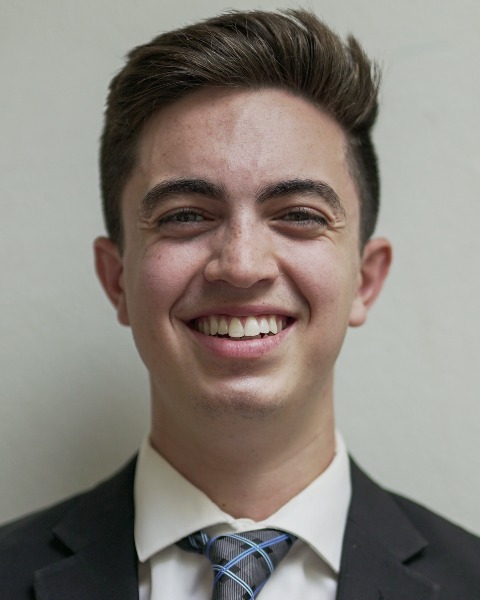Poster Presentation
Leadership, Mentoring, and Training the Next Workforce
Wednesday Poster Power Hour
WED-048 - Accomplished: An Adolescent Community Health Worker Program Mental Health Curriculum Addendum
Wednesday, April 16, 2025
12:30 PM - 1:30 PM PST
Location: Pacific I/II, 2nd Floor
Area of Responsibility: Area II: Planning@@@Area III: Implementation@@@Area IV: Evaluation and Research@@@Area VII: Leadership and Management
Subcompetencies: 0, 4.3.6 Analyze data.
Research or Practice: Research
Subcompetencies: 0, 4.3.6 Analyze data.
Research or Practice: Research

Jack Riley, B.A.
Medical Student
Columbia University Vagelos College of Physicians and Surgeons
New York, New York, United States
Poster Presenter(s)
Learning Objectives:
At the end of this session, participants will be able to:
- Upon completion of this session, participants will be able to demonstrate knowledge in the implementation of a Mental Health Community Health Worker (CHW) Training Program.
- Upon completion of this session, participants will be able to analyze the effectiveness of a Mental Health CHW Training Program through the measurement of knowledge, attitudes, and self efficacy.
- Upon completion of this session, participants will be able to demonstrate knowledge in the narrative reflections of students participating in a Mental Health CHW Training Program.
Detailed abstract description:
Introduction: The increasing prevalence of the three most common mental health disorders (3MHDs) depression, anxiety, and alcohol/substance use disorders, have outpaced resources for treatment, particularly in disadvantaged communities. Key barriers to treatment include literacy and stigma, which contribute to low and delayed symptom reporting and treatment implementation. Community health interventions focused on mental health may improve related outcomes and quality of life. Community Health Workers (CHWs), are “lay health workers”—frontline health educators, healthcare navigators, and health screeners, who deliver community-based health services and interventions with demonstrated impact. Key CHWs attributes include local credibility and culturally aligned engagement. Traditionally CHWs are adults, but high school students may be a sizeable under-utilized population to serve as CHWs to peers, families, and local communities.
Methods: For the past 20 years our group has led multigenerational community health education programs including training adult CHW and elementary students to serve as health education conduits to their families and broader communities. In Winter 2024, we began ACComPLISHED, a 12-week CHW program that engages youth with public health topics to bolster health knowledge, attitudes, and self-efficacy; offer a longitudinal bidirectional mentorship opportunity; and provide a platform to practice community health education. A mental health curriculum (MHC) was developed and implemented in summer 2024 focused on knowledge and attitudes of 3MHDs. Student performance was measured quantitatively through validated instruments (MHLS, ADKQ, ALQ, AQ-SUD, VCQ) complemented by qualitative Likert scales and inductive thematic analysis.
Results: 329 high school students (10th -12th grade) from New York City were enrolled, 203 completed the core didactic programming. Programs were delivered as virtual synchronous didactics, asynchronous modules, standardized simulated patient interviews, and a community intervention project. Summative scores of the validated scales increased from 75.6% (n=240) at baseline to 89.2% at post-test (n=203), (p < 0.001, paired t-test) with similar trends after each individual program. Most notable were improvements in awareness of where to seek help, self-efficacy for seeking help, and sympathy for others with 3MHDs. There were no significant differences by race-ethnic, gender, or socioeconomic groups. Inductive thematic analysis highlighted themes of close relationships with friends and family and more openness to 3MHDs topics.
Conclusion: High School CHWs demonstrated significantly improved mental health knowledge and help-seeking self-efficacy in response to a novel mental health curriculum.
